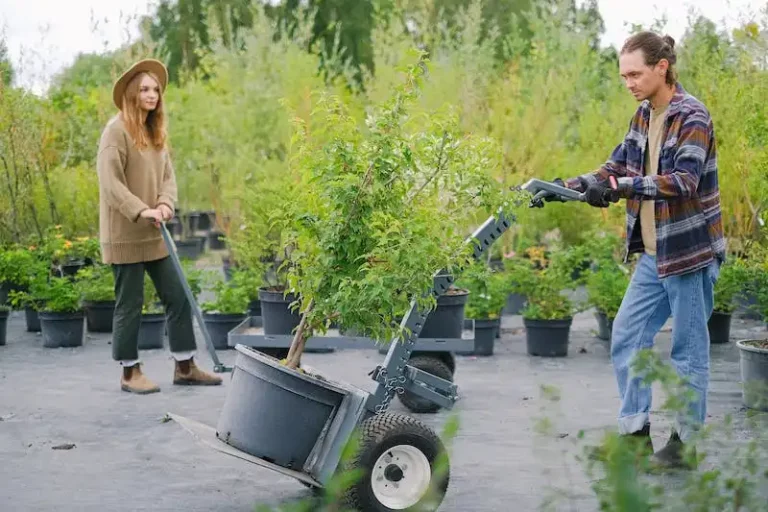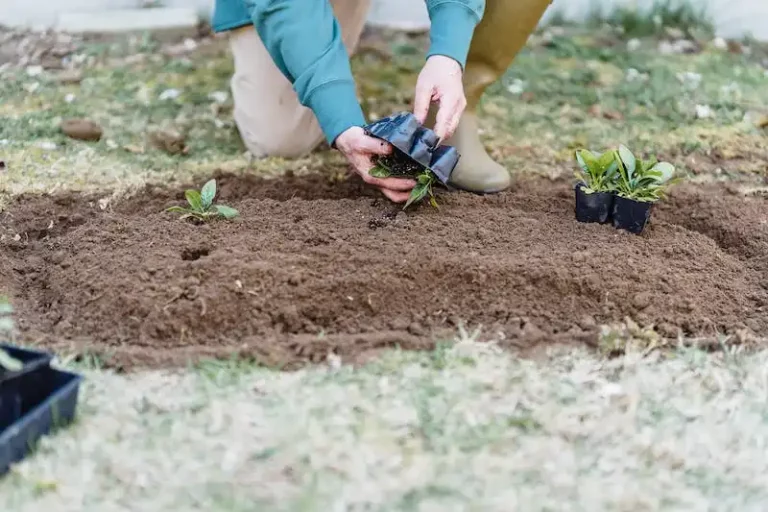If you’re a plant lover, you’ve probably had to deal with scale insects infecting your beloved houseplants. These tiny pests can wreak havoc on your plants, sucking the sap from the leaves and branches. Though they may be small in size, scale insects are not to be underestimated. They can quickly multiply and spread throughout your collection, causing severe damage if not controlled properly.
Recognizing scale insects can be challenging, as they often appear as small, shell-like bumps on the surfaces of leaves, stems, and branches. They can blend in well with the plant, making them difficult to spot at first glance. However, with a close eye and proper control measures, you can eliminate these pests and save your plants from their destructive effects.
One simple step you can take to get rid of scale insects is to directly apply an alcohol-soaked cotton swab or cotton ball to the infested areas. You can use isopropyl alcohol or rubbing alcohol for this purpose. Gently dab the alcohol onto the scales to kill them. Be sure to follow the instructions provided for the alcohol you choose, and rinse the plant with water after treatment to prevent any damage to the plant’s tissues.
Another effective method is to use neem oil, which is a natural insecticide. Neem oil contains compounds that can interfere with the growth and reproduction of scale insects. Apply neem oil regularly, following the packaging instructions, to control and manage scale populations. This treatment may require patience and multiple applications to be successful, as scale insects can be persistent.
If the infestation is severe, you may need to resort to using chemical insecticides. However, be cautious when using these products and follow the instructions carefully. It’s important to note that some insecticides may not be suitable for all houseplants, so it’s best to do some research or consult with plant care professionals before using them.
To prevent the scale insects from spreading to your other houseplants, it’s recommended to isolate any infested plants. Quarantine them in a separate area until you’re confident that the infestation has been eliminated. Regularly inspect your plants for any signs of scale insects, and if you spot any, address the issue immediately to prevent further damage.
In conclusion, scale insects can be a nuisance for plant enthusiasts, but with the right methods and treatments, you can effectively get rid of them and protect your beloved houseplants. Remember to be vigilant, patient, and proactive in managing scale infestations. With proper care and attention, your plants can thrive and bring you joy for many months to come.
How To Get Rid of Scale on Plants
Scale insects can be a nuisance for houseplants, causing damage to leaves and inhibiting plant growth. However, there are several methods you can try to remove these pesky insects from your plants.
1. Identify the Scale Insects: Scale insects are small, oval-shaped pests that can vary in color depending on the species. They often appear as tiny bumps on the leaves or stems of plants. Regularly inspect your plants for symptoms of scale infestation, such as yellowing leaves or a sticky residue.
| Scale Insect Species | Appearance |
|---|---|
| Soft scale insects | Resemble small, flat discs |
| Armored scale insects | Have a hard, protective covering |
2. Remove Scale Insects Manually: For a small infestation, you can use your fingernail or a cotton swab dipped in rubbing alcohol to carefully remove the scales from the plant. Be sure to dispose of any fallen scales, as they can spread and infect other plants.
3. Prune Infested Branches: If the infestation is more severe, prune the affected branches and dispose of them properly. This will help prevent the scales from spreading to other parts of the plant.
4. Wash the Plant: If the infestation isn’t too severe and the plant can tolerate it, you can wash the leaves and stems with a mild soap and water solution. Be sure to rinse the plant thoroughly to remove any soap residue.
5. Use Natural Predators: Some insects, such as ladybugs or lacewings, feed on scale insects and can help control their population. You can introduce these beneficial insects to your garden or houseplants as a natural method of pest control.
6. Treat with Neem Oil: Neem oil is an effective treatment for scale insects. Mix neem oil with water according to the package instructions and spray it onto the affected plant, focusing on the base and all branches. Repeat this treatment every 7-10 days for several weeks to ensure successful eradication.
7. Quarantine Infested Plants: If you have multiple plants and one of them is infested with scale insects, place it in quarantine to prevent the infestation from spreading to other plants. Keep it isolated until the scales are completely removed and the plant is no longer showing any signs of infestation.
Remember to regularly inspect your plants for any signs of scale insects and take immediate action if you detect an infestation. By following these steps, you can effectively manage and treat scale insects, keeping your plants healthy and pest-free.
Thank you to Ohio State University Extension and David Walter Peattie for providing information on how to get rid of scale insects on houseplants.
You spend a lot of time caring for your houseplants. When you notice scale, isolate your plant, patient and nurse it back to health by following these simple steps.
Scale insects can be a common problem for houseplants. These small, oval bugs attach themselves to the leaves and stems of plants, feeding on their sap. Although they are harmful to the plants, there are ways to eliminate them and keep your plants healthy.
Treatment
- Use a cotton swab or a soft cloth soaked in rubbing alcohol to gently wipe away the scale insects.
- If there are a large number of scales, you can use a horticultural oil spray to suffocate them.
- For heavily infested plants, you may need to use an insecticide specifically designed to kill scale insects.
Preventative Measures
To prevent scale infestations in the future, it is important to inspect your plants regularly. Look for any signs of scale insects, such as tiny bumps or a sticky residue on the leaves. If you notice any, take immediate action to eliminate them.
- Choose plant varieties wisely. Some plants are more resistant to scale insects than others.
- Avoid overwatering your plants, as scale insects are attracted to moisture.
- Ensure that your plants receive the right amount of sunlight, as scale insects are more prevalent in shady conditions.
Natural Remedies
If you prefer to use natural methods to get rid of scale insects, there are a few options available:
- Dabbing the scales with a cotton swab dipped in a mixture of water and dish soap can help eliminate them.
- You can also try spraying your plants with neem oil, which is a natural insecticide.
- Ladybugs and lacewings are natural predators of scale insects and can help control their population.
By following these steps and implementing preventative measures, you can keep your houseplants free from scale insects and ensure their continued health and beauty.
BEFORE YOU BEGIN
Before you begin the process of getting rid of scale insects on your houseplants, there are a few important things to keep in mind.
Inspect and recognize the symptoms: Scale insects can be recognized by their small, oval and typically white or brown shells. They can also leave behind sticky residue on the leaves and stems.
Identify the source of the infestation: Check your houseplants for any signs of scale insects, as they are a common source of the infestation. Inspect other plants as well, as untreated infested plants can serve as a source for reinfestation.
Remove and dispose of infested plants: If you find that your houseplants are infested, remove them from the area and dispose of them properly. Do not compost the plants, as this can spread the insects to other plants.
Water your plants well: Scale insects are often attracted to plants that are stressed or under-watered. Make sure your plants receive adequate water to help keep them healthy and less susceptible to infestations.
Consider natural control methods: Before applying insecticides, consider using natural control methods such as rubbing alcohol or neem oil. These can be applied directly to the scale insects and their eggs to kill them.
Apply insecticide if necessary: If natural control methods have not been effective, you may need to use an insecticide specifically designed to control scale insects. Follow the instructions on the insecticide label and apply it only to the affected areas.
Repeat treatments: Scale insects can be persistent, so multiple treatments may be necessary. Follow up with treatments every few weeks to make sure any newly hatched insects are also eliminated.
Keep an eye out for ants: Ants are attracted to the sticky residue left behind by scale insects. If you notice ants on your houseplants, it may indicate a scale insect infestation.
Thoroughly wash or leeching the plants: After the treatment process, it is important to thoroughly wash or leech the plants to remove any harmful residues.
Always read and follow the instructions: Before using any insecticides or natural control methods, make sure to read and follow the instructions provided by the manufacturer. This will ensure proper application and minimize any harm to your plants.
Contact an expert if needed: If you are unsure about how to handle a scale insect infestation or if the infestation is severe, it is always a good idea to reach out to a professional for help and guidance.
By following these tips and taking the necessary steps, you can effectively control and get rid of scale insects on your houseplants.



